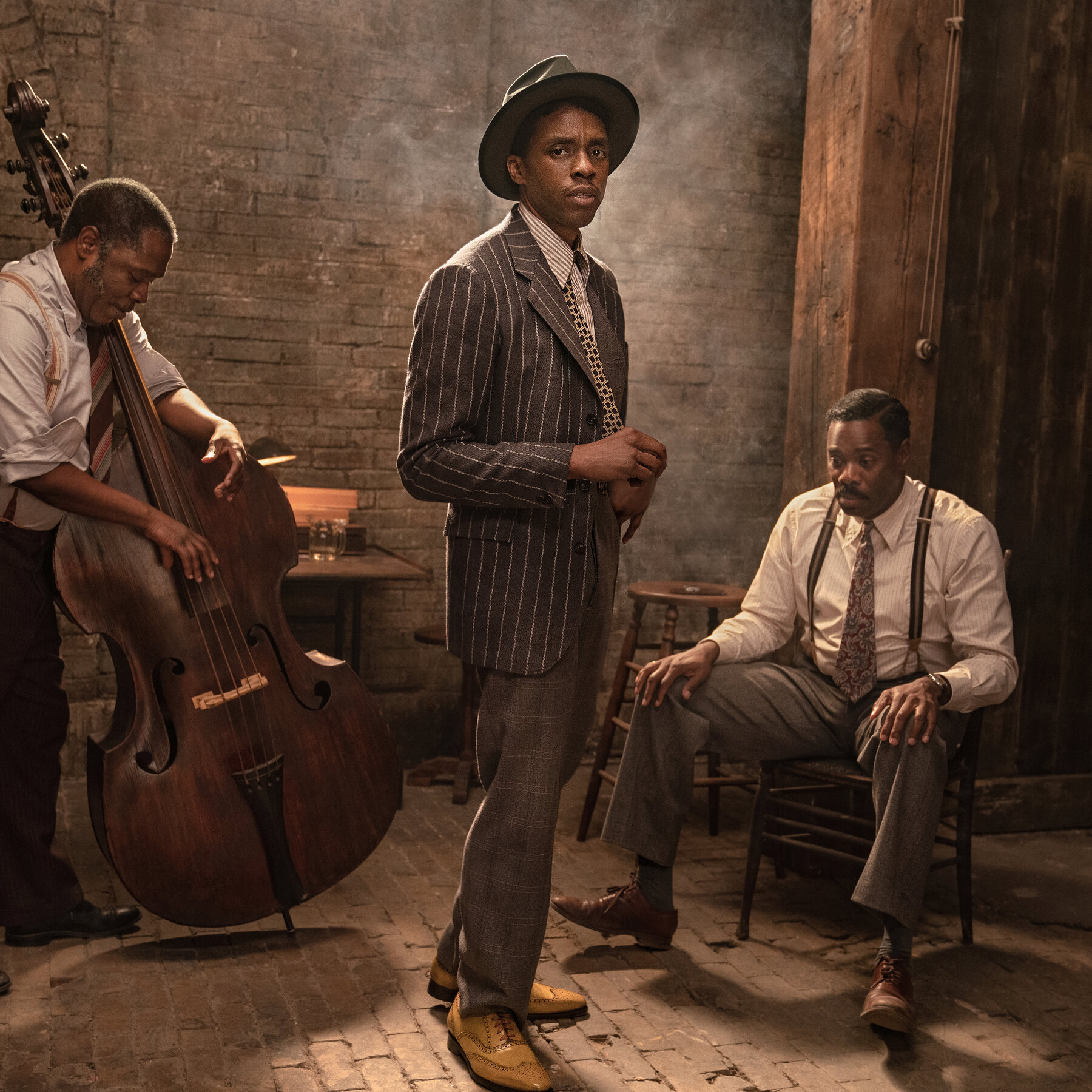“Ma Rainey’s Black Bottom”
Runtime: 94 mins
Release date: December 18, 2020
Directed by: George C. Wolfe
Starring: Chadwick Boseman
Viola Davis
Glynn Turman
Colman Domingo
The death of a star prior to a movie’s release can substantially affect the way that movie is received by critics and audiences. Maybe the movie will generate a buzz that it would not have received otherwise and maybe more people will check it out from a sense of obligation or curiosity.
In “Ma Rainey’s Black Bottom” the central role is played by the late Chadwick Boseman; it is his last on-screen appearance. It is certainly fitting that Boseman’s final movie fundamentally serves to shine a glaring spotlight on the actor. His effervescent charisma, vast emotional range, and physicality are not only on full display, but the contours of “Ma Rainey’s Black Bottom” exist, for all intents and purposes, as a playground for Boseman to show off his chops one last time. It is as if Boseman purposely picked this as his final project because he wanted to go out with a complete tour de force. Whether it was purposeful or simply a twist of fate, the end result is the same.
This is the kind of movie where juicy monologues unveiling traumatic pasts, thickly slathered in melodrama, are unleashed at the slightest provocation. On the face of it, these outbursts strike me as lazy methods of revealing dramatic information. However, the strength of Boseman’s performance envelops me in the overwhelming amounts of emotion seeping from every line and I find myself not caring that the catalyst for these moments came out of nowhere.
As far as I can tell this is just the dramatic structure employed by writer August Wilson in his plays. Of his works, I have only ever seen “Fences” before, and I can definitely see a similarity in the writing between that film and “Ma Rainey.” Like “Fences,” “Ma Rainey’s Black Bottom” survives largely on the power of its performances.
Boseman may steal the show, but the supporting players do their best to hold things up across the rest of the film. Strange as it may seem, Viola Davis’s turn as the eponymous early 20th century blues singer, with a fearless confidence and a mouthful of fake teeth, is not the showstopper presence on display here.
The less important characters and their actors range from good to distracting. The actor playing the band’s pianist, for one, falls below par in his role. It may be unfair to pin my annoyance with this character on the actor portraying him. The part is written in a way that embodies every facet of the old Black man trope that has been used countless times before. You have seen it all countless times before. I wish I could say it was only the writing of the character I had issues with, but I simply could not accept the actor’s glances and gestures as the least bit genuine. Maybe the cruel fate of having Boseman’s virtuosity to the side as comparison makes a merely mediocre performance sink below average. Regardless, the piano player served to distract me from the movie for a lion’s share of his portion of time on screen.
On the filmmaking side of things, not much is done to disguise “Ma Rainey’s” origins on the stage. The adaptation seems to accept the limitations of its original format and largely fails to create a cinematic experience. Because of the outstanding central performance, I can almost forgive the absence of inspired direction. Perhaps something super stylized might have taken away from Boseman’s performance at center stage.
It truly cannot be overstated how much Boseman adds to this movie. I said above that this was a fitting last role because of how much it gives him to chew on, but really, in a fair world, there would have been many more great performances to follow.















Be First to Comment